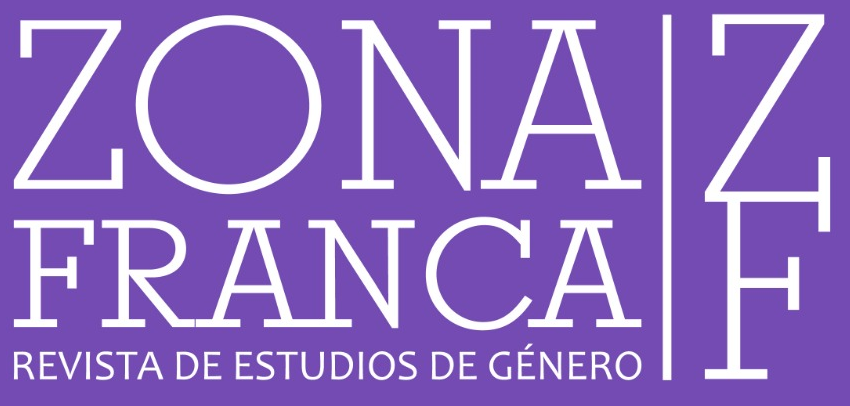The rebellion of the revealed image: looking through “the camera obscura”
DOI:
https://doi.org/10.35305/zf.vi31.278Keywords:
photography , body, beauty patternsAbstract
Social identity is not necessarily determined by society, however, it is inevitably constructed by it and mediated by its discourse. Each society imposes a conception of the corporeal and the beautiful that, like the word, is subject to a social administration, where the private and the public are intertwined. Thus, the speech works as an instruction on acting, speaking and even thinking, allowing each member to assume the social role that others are able to recognize. These lines invite us to look through the protagonist of the film “The dark camera”, the feminine image that is defined by the establishment of a desired type of woman according to an ideal pattern socially constructed for acting, saying and being silent. However, she is encouraged to discover and explore the confines of the universe at the door of her house, by appropriating the word and re-creating an existence that saves her. Gertrudis moves away from the common place of victimization creating an approach that overcomes by reinforcing marginality with disobedience, imposing itself on invisibility and silence. She was able to question the mandates speaking from silence by expressing her rebellion against a culture of domination, installing the family photograph in the center of her home, in sight, symbolically in the public space.Downloads
References
BACHELARD, Gastón (1990). La poética del espacio, Fondo de Cultura Económica, México.
BARTHES, Roland (2003). La cámara lúcida. Nota sobre la fotografía, Paidos, Buenos Aires.
BERGER, Peter - LUCKMANN, Thomas (2008). La construcción social de la realidad, Amorrortu, Madrid.
CASTILLA DEL PINO, Carlos (1982). El silencio, Alianza Editorial, Madrid.
COLODRO, Max (2004). El Silencio en la Palabra: Aproximaciones a lo Innombrable, Siglo Veintiuno, México.
ECHEVERRI, Carlos (2017. Espejos: transparencia, reflejo, contradicción e interacción, en: Cuadernos de Música, Artes visuales y Artes escénicas, Volumen nº6, Número 1, Enero- junio 2011, pp. 65-70, Bogotá D.C., Colombia.
FRIGOLE, Joan (1987). Metáforas domésticas y culinarias sobre la mujer y la reproducción en el área mediterránea: aproximación a un sistema conceptual. REIS, Revista española de investigaciones sociológicas, Nº 40, España.
GIRAUD, Claude (2007). Acerca del secreto. Contribución a una sociología de la autoridad y del compromiso, Editorial Biblos, Buenos Aires.
GOUDSBLOM, Johan (2008). La vergüenza como dolor social en La civilización en cuestión. Escritos inspirados en la obra de Norbert Elías, Miño y Dávila, Buenos Aires.
HEIDEGGER, Martin (2014). Seminarios de Zollikon, Editorial Herder, Barcelona.
LACAN, Jacques (1994). El Seminario, Libro 4, La relación de objeto (1956-57), Paidos, Buenos Aires.
LE BRETON, David (1992). Antropología del cuerpo y modernidad, Nueva Visión, Buenos Aires.
LE BRETON, David (2009). El silencio: aproximaciones, Sequitur, Madrid.
MERLEAU-PONTY, Maurice (1986). Estructura del comportamiento, Hachette, Buenos Aires.
MONTERO BOSCH, David (2016). La ambigüedad de la culpa y la vergüenza y las técnicas de dominación Pasajes: Revista de pensamiento contemporáneo Nº. 49, Valencia.
NAON, Noemí - ALVARADO, M. Cristina (2007). La muñeca: Representación de las complejidades del sujeto, Instituto Oscar Massota, Bahía Blanca.
SIMMEL, George (1986). Sociología: Estudio sobre las formas de socialización, Alianza, Madrid.
SONTAG, Susan (2012). Sobre la fotografía, Debolsillo, Buenos Aires.
TREIBEL, Guadalupe (2008). La mirada indiscreta. Entrevista Página 12, viernes 10-10-2008, consultado en línea mayo 2023, en: https://www.pagina12.com.ar/diario/suplementos/las12/13-4425-2008-10-10.html
REFERENCIA AUDIOVISUAL
MENIS, MARÍA VICTORIA (directora) “La Cámara oscura” (2007), sobre el cuento homónimo de Angélica Gorodischer, publicado en el libro “12 mujeres cuentan”, Buenos Aires, Ediciones La Campana, 1983.
Published
How to Cite
Issue
Section
License
Copyright (c) 2023 alejandra heffes

This work is licensed under a Creative Commons Attribution-NonCommercial-NoDerivatives 4.0 International License.





